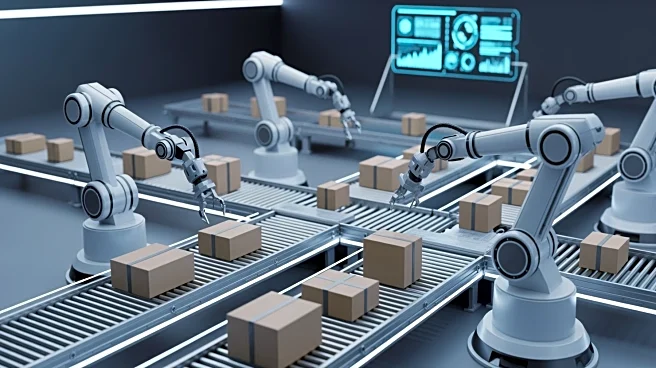What's Happening?
FleetOwner has published an article discussing the modernization of logistics operations through the integration of artificial intelligence (AI). The piece emphasizes that modernization is not solely about adopting new technology but involves creating
connected systems and clean data. These elements are crucial for AI to effectively understand and optimize complex logistics operations. The article features an interview that explores how scalable platforms and smart implementation can drive lasting transformation across the logistics industry.
Why It's Important?
The integration of AI into logistics operations is significant as it promises to enhance efficiency and optimize processes within the industry. By leveraging connected systems and clean data, companies can improve decision-making and operational performance. This transformation is likely to benefit logistics companies by reducing costs, increasing speed, and improving service delivery. As the logistics sector is a critical component of the U.S. economy, advancements in this area can have widespread implications for supply chain management and consumer satisfaction.
What's Next?
The article suggests that the next steps involve further adoption and implementation of AI-driven systems across the logistics industry. Companies may focus on developing scalable platforms that can accommodate growing data needs and enhance operational capabilities. Stakeholders in the logistics sector, including technology providers and logistics firms, are expected to collaborate to refine these systems and ensure they meet industry demands. Continued investment in AI technology and infrastructure will be crucial for sustaining this transformation.
Beyond the Headlines
Beyond the immediate benefits, the integration of AI in logistics could lead to long-term shifts in industry practices. Ethical considerations regarding data privacy and security may arise as companies handle increasing volumes of data. Additionally, the workforce may experience changes as automation and AI systems alter job roles and skill requirements. These developments could prompt discussions on workforce training and adaptation to new technologies.

















